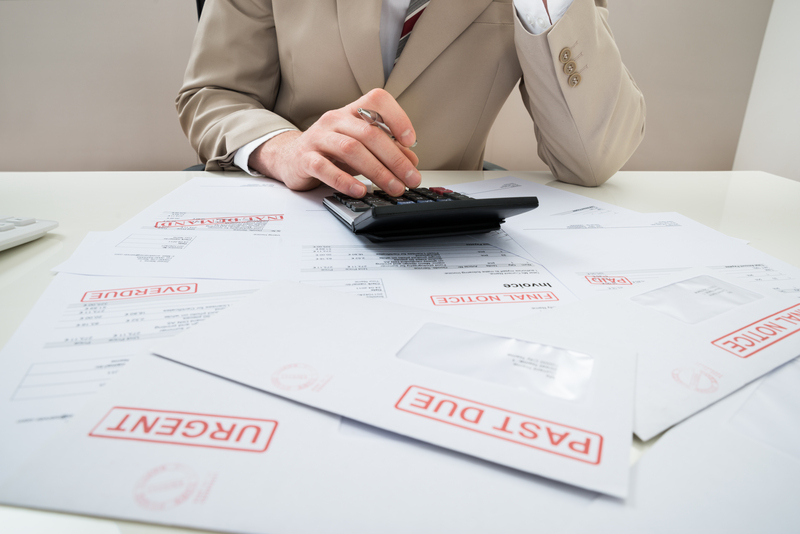Exploring the Real Risks of Solo Piano Relocations
Posted on 21/05/2025
Exploring the Real Risks of Solo Piano Relocations
Relocating a piano is rarely a straightforward task, especially when you are considering moving a piano solo. Many music enthusiasts underestimate the risks involved with solo piano relocations, believing it to be a manageable task with enough strength and determination. However, the reality is far more complex. In this comprehensive article, we will delve deep into the real dangers of piano relocation without professional help, highlight potential consequences, and offer advice for those determined to move their instrument independently.

Understanding the Complexity of Piano Relocation
Pianos are not just large and heavy; they are also exquisitely intricate instruments. The combination of wooden framework, taut strings, felt pads, and precise components makes them both fascinating and fragile. Even a seemingly minor jolt can result in significant damage. Let's examine why relocating a piano alone is fraught with more challenges than moving typical furniture.
The Weight and Size Factor
- Upright Pianos: Generally weigh between 300 to 500 pounds (136 - 227kg), with professional uprights sometimes exceeding this range.
- Grand Pianos: Can weigh up to 1,200 pounds (544kg) or more, with large concert grand pianos being particularly unwieldy.
Why does this matter? This kind of weight isn't just difficult to lift; it shifts the center of gravity, making pianos prone to tipping over. When you relocate a piano on your own, controlling this awkward weight distribution can be nearly impossible.
Delicate Internal Mechanisms
A piano's internal structure is composed of thousands of moving parts, including keys, hammers, strings, and pedals. An accidental bump, sudden movement, or incorrect lifting technique risks:
- Throwing the piano out of tune
- Bending or breaking internal pins and hammers
- Damaging the soundboard or frame
- Misaligning pedals and dampers
Even minor mishandling can transform a beautiful-sounding instrument into an unplayable, costly problem.
Personal Injury Risks
It's easy to underestimate just how dangerous piano moving can be for your own safety. Solo piano relocations increase your risk of:
- Back strains, herniations, or other musculoskeletal injuries
- Crushed fingers or toes
- Slips, trips, and falls--especially on stairs or uneven surfaces
Given that pianos are not designed to be carried by a single person, taking on such a task increases strain and the likelihood of serious injuries.
Hazards Involved in Moving a Piano Alone
Now that we understand the complexity and inherent danger of pianos as objects, let's examine the actual risks involved in DIY piano relocation.
Property Damage Risks
- Scratched Floors: Pianos can easily gouge hardwood, scrape tiles, and damage carpeting if not handled with suitable equipment.
- Damaged Doorways and Walls: Navigating tight spaces solo can lead to scraped paint, broken trim, or even holes in walls.
- Stair Accidents: Attempting to maneuver a piano up or down stairs alone poses a huge risk--not just to yourself, but also to the stairs, bannisters, and adjacent rooms.
Instrument Damage Risks
- Soundboard Cracks: The soundboard is one of the most delicate parts. Excessive pressure or a sudden drop can cause irreparable cracks.
- Broken Legs or Wheels: Even a small upright can collapse if one leg or wheel gives out under unbalanced pressure.
- Internal Dislodgment: A jolt or sharp impact can shift keys, hammers, or even warp the piano's iron frame.
Unlike a typical move, repairing a damaged piano is not as simple as repainting or sanding; it often requires a specialist and can incur costs rivaling the price of a new instrument.
Risks to Others and Legal Liability
- Compromising Shared Spaces: In apartment buildings or communal living scenarios, an uncontrolled piano move could endanger others or lead to legal liability for damages.
- Unintentional Harm: Losing control of the piano can cause severe injuries to helpers, neighbors, or family members nearby.
Why Do People Attempt Solo Piano Moves?
Despite these significant hazards, some individuals still risk solo piano relocations. Why?
- Cost Savings: Professional piano movers can charge hundreds or even thousands of dollars, leading some to opt for the DIY route.
- Simplicity or Convenience: The misconception that it is "just another piece of furniture" leads many to underestimate the risk.
- Lack of Awareness: Many people are simply unaware of the unique structure and value of their instrument, and the specific techniques needed for safe transport.
The Hidden Costs of Solo Piano Relocations
While saving money may seem worthwhile, many solo piano movers end up facing:
- Expensive repairs for structural or internal damage
- Medical bills from personal injuries
- Insurance claims or lawsuits if others are injured or property is damaged
Safe Alternatives to Solo Piano Moving
If you're determined to move your piano yourself, consider these steps to minimize risk:
- Recruit Help: Always enlist at least three or four strong, capable helpers.
- Use Proper Equipment:
- Piano dollies and straps for mobility
- Padded moving blankets to protect surfaces
- Ramps for stairs
- Work gloves for grip and safety
- Measure Everything: Confirm that doorways, hallways, and staircases are wide enough to accommodate your piano's dimensions beforehand.
- Clear Obstacles: Remove all items along the route to prevent accidents or jams.
- Plan and Communicate: Make sure every helper understands their role and the plan before lifting begins.
Warning: Even with these precautions, novice movers are not equipped to handle all of the potential issues, especially with larger or antique pianos.
Advantages of Hiring Professional Piano Movers
When weighing the risks of moving a piano solo, it's important to reckon with the value of professional expertise.
- Specialized Training: Professional piano movers know how to properly lift, secure, and transport all types of pianos.
- Proper Equipment: Pros use heavy-duty dollies, hoists, padding, and climate-controlled trucks to keep your instrument--and home--safe.
- Insurance Coverage: If an accident does happen, professional companies are insured against both damage and personal injury.
- Experienced in Tight Spaces: Navigating tricky stairs, tight corners, or even crane lifts, pros understand the shortest, safest paths.
In nearly all circumstances, hiring professionals drastically reduces the likelihood of property, instrument, and personal damage.
Key Takeaways: Should You Attempt a Solo Piano Relocation?
- Solo piano relocation carries high risk for personal injury, property damage, and harm to the piano itself.
- Pianos have complex internal mechanisms that are vulnerable to shock and pressure.
- Attempting to move a piano alone to save money may ultimately cost much more in repairs or medical expenses.
- Recruiting helpers and using specialized equipment mitigates, but does not eliminate, the risks.
- Professional piano movers offer experience, equipment, and insurance that make the process vastly safer.

Frequently Asked Questions about Relocating a Piano Solo
1. Why is moving a piano so dangerous?
Moving a piano solo is dangerous because of the enormous weight, unpredictable center of gravity, awkward shape, and fragile components. The risk of personal injury--from back injuries to crushed fingers--is high, and costly damage to both your home and the instrument is likely without proper technique and equipment.
2. Can I move a small piano on my own?
Even small uprights can weigh over 300 pounds and are susceptible to damage. Trying to move any piano alone is almost always ill-advised. Always enlist help and the right equipment, or better yet, seek professional assistance.
3. What should I do if I must move a piano by myself?
If moving a piano solo is truly unavoidable, ensure you use:
- Proper moving tools
- Protective padding
- Slow, controlled movements
Conclusion: Weighing the Risks & Rewards of Solo Piano Moves
In summary, solo piano relocations may appear simple but are in fact fraught with hidden dangers and unexpected costs. The risks of moving a piano alone--from injury to property and musical loss--are considerable. Investing in professional movers protects your valuable instrument and ensures the safety of everyone involved. Whenever possible, avoid solo attempts and make sure your cherished piano arrives at its new home undamaged and fully ready to play.
Looking for more advice on safe piano relocation? Don't hesitate to consult local professionals or specialized forums for tips and support. Your piano--and your back--will thank you!
Latest Posts
Expert Advice on Moving Your Bed and Mattress
Master the Art of Cleaning Before Moving Out
Expert Advice on Packing Effectively for a Stress-Free Move



